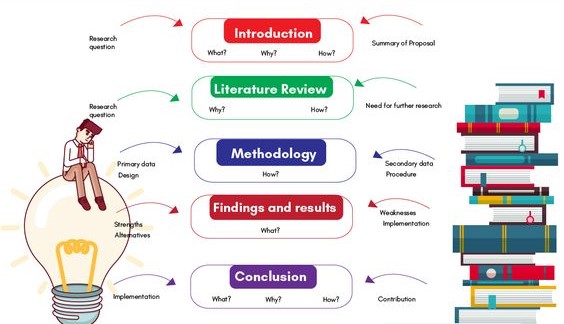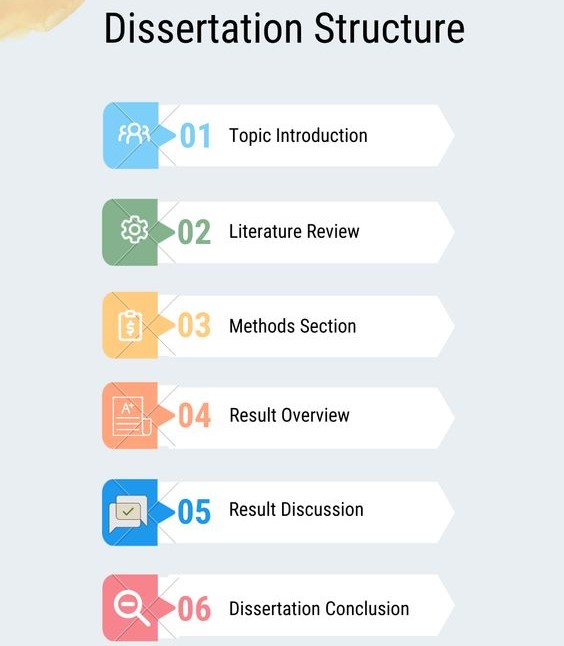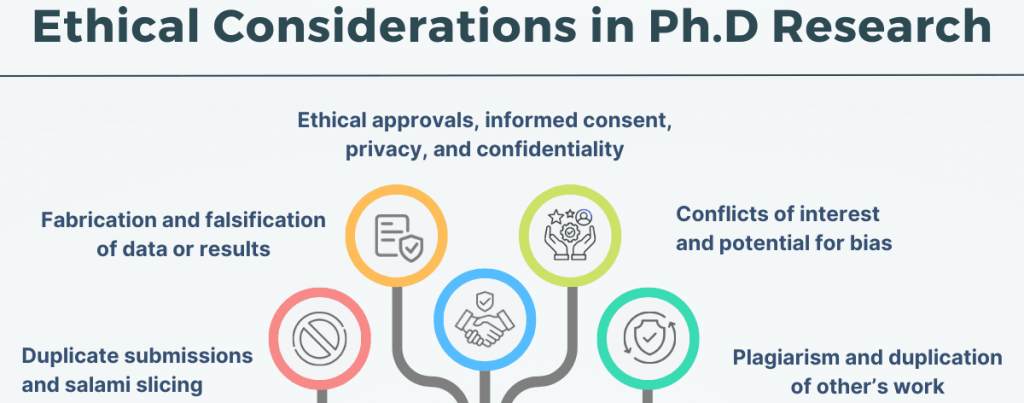
Table of Contents
Embarking on a nursing dissertation is a significant undertaking, demanding rigorous research, meticulous analysis, and skillful communication. This comprehensive guide will equip you with the knowledge and strategies needed to navigate the intricacies of nursing dissertation writing, from choosing a compelling topic to submitting your final draft.
Step-by-Step Guide to Nursing Dissertation Writing
1. Selecting Your Dissertation Topic:
The foundation of a successful nursing dissertation lies in selecting a topic that resonates with your interests and expertise. Here’s a roadmap to guide you in choosing a nursing dissertation topic.
- Identify Your Passions: Reflect on your experiences, observations, and areas where you feel a strong desire to contribute to knowledge.
- Review Current Literature: Explore existing research in your chosen field, noting gaps, emerging trends, and unanswered questions.
- Consult With Mentors: Seek guidance from professors or experienced nurses who can provide valuable insights and help you refine your topic.
- Consider Practicality: Ensure your chosen topic is feasible within the constraints of time, resources, and ethical considerations.
- Formulate a Clear Research Question: A well-defined research question will provide direction and focus to your entire dissertation process.
2. Crafting a Compelling Dissertation Proposal:
The dissertation proposal serves as your roadmap, outlining your research design and methodology. It is crucial to present a convincing case for the significance and feasibility of your study:
- Introduce the Problem: Briefly but convincingly articulate the problem or gap your research aims to address, citing relevant literature to support your claims.
- State Your Research Question(s): Clearly present the specific questions your study will aim to answer.
- Define Key Concepts: Provide precise definitions for all key terms and concepts used in your proposal.
- Present Your Literature Review: Synthesize existing research on your chosen topic, highlighting key findings, theoretical frameworks, and research gaps.
- Outline Your Methodology: Explain the research design (e.g., quantitative, qualitative, mixed methods), data collection methods, sampling strategies, and data analysis techniques.
- Discuss Ethical Considerations: Address potential ethical challenges and ensure compliance with relevant research guidelines.
- Provide a Timeline: Outline a realistic and achievable schedule for completing each stage of your dissertation.
- Present Expected Contributions: Explain the potential impact of your research on the field of nursing practice, policy, or theory.

3. Conducting Rigorous Research:
The foundation of any successful nursing dissertation is rigorous research that is both relevant and reliable:
- Data Collection: Employ appropriate data collection methods, such as surveys, interviews, observations, or document analysis, to gather accurate and relevant data.
- Data Analysis: Choose suitable data analysis techniques based on your research design and research questions. This may involve statistical analysis for quantitative data, thematic analysis for qualitative data, or a combination of approaches for mixed methods research.
- Ethical Considerations: Ensure adherence to ethical principles throughout the research process, including informed consent, confidentiality, and data security.
- Rigorous Documentation: Maintain detailed records of all research activities, data collection procedures, and analysis methods.
- Literature Review Update: Continuously review emerging literature to remain updated on the latest developments in your field, which may necessitate adjustments to your research approach or analysis.
4. Structuring Your Dissertation:
A well-structured nursing dissertation is essential for clarity and effective communication of your findings:
- Introduction: Provide a compelling overview of your research, including background information, problem statement, research question(s), and a brief outline of the dissertation structure.
- Literature Review: Synthesize existing research, highlighting key findings, theoretical frameworks, and research gaps. This section should be structured logically, demonstrating a clear understanding of the field and establishing the significance of your research.
- Methodology: Explain your research design, including data collection methods, sampling strategies, and data analysis techniques. Ensure a clear and detailed explanation of your methods to ensure replicability and transparency.
- Findings: Present your research findings in a clear and concise manner, using tables, figures, and text to illustrate your key results.
- Discussion: Analyze and interpret your findings in relation to existing literature, addressing your research questions and highlighting the implications of your study. This section should demonstrate critical thinking and contribute to the advancement of knowledge.
- Conclusion: Summarize your key findings, reiterate the significance of your study, and discuss the limitations and implications for future research.
- References: Provide a comprehensive list of all sources cited within your dissertation.
- Appendices: Include supplementary materials, such as questionnaires, interview transcripts, or raw data, as deemed relevant.

5. Writing With Clarity and Precision:
Writing a nursing dissertation requires both clarity and precision in language:
- Use Academic Style: Maintain a formal and objective tone, avoiding slang, contractions, or personal opinions.
- Ensure Logical Flow: Structure your arguments logically, using transitions to connect ideas and guide the reader through your research process.
- Be Precise and Specific: Avoid vague language or generalizations, instead providing clear and concise explanations of your methods, findings, and interpretations.
- Support Statements with Evidence: All claims and interpretations must be supported with credible evidence from your research findings and relevant literature.
- Avoid Plagiarism: Ensure all ideas and words borrowed from other sources are appropriately cited using a consistent referencing style.
- Proofread Meticulously: Carefully proofread your dissertation for grammatical errors, typos, and inconsistencies before submitting your final draft.
6. Seeking Feedback and Revision:
Critical feedback is essential for improving the quality of your nursing dissertation:
- Seek Feedback from Mentors: Regularly discuss your work with your dissertation advisor and other faculty members, seeking their guidance on content, structure, and clarity.
- Get Peer Review: Ask colleagues or classmates to review your dissertation for clarity, logic, and coherence.
- Incorporate Feedback: Carefully consider all feedback received and revise your dissertation accordingly, addressing any weaknesses or inconsistencies identified.
- Revise and Revise Again: Embrace multiple rounds of revision, allowing time for reflection and improvement.
7. Submitting Your Dissertation:
The culmination of your hard work and dedication is the submission of your final dissertation:
- Follow University Guidelines: Adhere to all formatting requirements specified by your university, including font size, margins, referencing style, and submission deadlines.
- Submit a Complete and Well-Organized Document: Ensure all sections are present, clearly labelled, and formatted correctly.
- Proofread Thoroughly: One last meticulous proofread before submission is essential to ensure error-free and professional presentation of your work.
- Be Prepared for Defense: After submission, you may be required to defend your dissertation in front of a committee. Prepare carefully for your defense, anticipating potential questions and rehearsing your responses.
Beyond Dissertation Submission
The completion of your nursing dissertation marks a significant milestone in your academic journey, but it also opens doors to new possibilities:
- Publish Your Findings: Consider submitting your research for publication in peer-reviewed journals or presenting your findings at conferences.
- Apply Your Knowledge: Use your research insights to inform your nursing practice, contribute to policy development, or initiate new research endeavors.
- Continue Your Education: Your dissertation may inspire you to pursue further studies, such as a PhD or a post-doctoral fellowship, to delve deeper into your chosen area of expertise.
Nursing dissertation writing is a challenging but rewarding endeavor. By following this comprehensive guide, you can equip yourself with the knowledge and strategies needed to navigate the process effectively. From selecting a compelling topic to submitting your final draft, remember to maintain focus, embrace the learning journey, and strive for excellence in every aspect of your research. Your dedication and perseverance will ultimately lead you to produce a significant contribution to the field of nursing.
Further Tips for Success:
- Prioritize Time Management: Create a detailed timeline and stick to it, allocating sufficient time for each stage of the dissertation process.
- Seek Support Systems: Surround yourself with a network of mentors, colleagues, and friends who can provide encouragement and guidance.
- Take Care of Yourself: Maintain a healthy balance between research and personal life, ensuring adequate sleep, exercise, and relaxation.
- Stay Organized: Use a research management system to organize your notes, references, and data files.
- Embrace the Journey: The process of nursing dissertation writing is a journey of discovery and growth, so embrace the challenges and enjoy the intellectual stimulation.
Common Mistakes to Avoid in Nursing Dissertation Writing
While nursing dissertation writing is a rewarding journey, it is crucial to avoid common pitfalls that can derail your progress and impact the quality of your work. Recognizing these mistakes and taking proactive steps to mitigate them will increase your chances of submitting a polished and impactful dissertation.
1. Lack of Clarity in Research Question:
- Mistake: A vague or poorly defined research question leads to a dissertation lacking focus and direction.
- Solution: Spend ample time refining your research question, ensuring it is specific, measurable, achievable, relevant, and time-bound (SMART). Consult with your advisor for feedback and guidance in crafting a clear and impactful research question.

2. Inadequate Literature Review:
- Mistake: A superficial or incomplete literature review weakens the foundation of your dissertation by failing to demonstrate a comprehensive understanding of the field.
- Solution: Conduct a thorough review of relevant literature, synthesizing existing research and identifying key gaps that your study aims to address. Use a structured approach to organizing your review, highlighting relevant theoretical frameworks and empirical findings.
3. Methodology Mismatch:
- Mistake: Selecting a research methodology that is inappropriate for your research question or research design can lead to unreliable results and flawed conclusions.
- Solution: Carefully choose a research methodology that aligns with your research question and objectives. Ensure that your data collection methods, sampling strategies, and analysis techniques are appropriate for the chosen methodology.
4. Weak Data Analysis:
- Mistake: Failing to analyze your data rigorously can lead to misleading or inconclusive findings.
- Solution: Employ appropriate data analysis techniques based on your research design and research question. Seek guidance from experts in data analysis if needed, and ensure that your analysis is thorough, transparent, and statistically sound.
5. Unclear Writing Style:
- Mistake: A dissertation with poor writing style can hinder the reader’s understanding and diminish the impact of your research findings.
- Solution: Employ clear and concise language, avoid jargon, and ensure logical flow in your writing. Use active voice and avoid overly complex sentence structures. Seek feedback from peers and mentors on the clarity and readability of your writing.
6. Plagiarism:
- Mistake: Failing to properly cite sources can lead to accusations of plagiarism, jeopardizing your academic integrity and jeopardizing your dissertation.
- Solution: Use a consistent referencing style and cite all sources meticulously. Utilize plagiarism detection software to ensure that your work is original and properly attributed.
7. Insufficient Time Management:
- Mistake: Inadequate planning and time management can lead to rushed work and missed deadlines.
- Solution: Create a detailed timeline, allocate sufficient time for each stage of the nursing dissertation writing process, and set realistic goals. Be flexible and adjust your schedule as needed, but avoid procrastination.
8. Lack of Feedback and Revision:
- Mistake: Failing to seek feedback and revise your dissertation based on constructive criticism can lead to a weaker final product.
- Solution: Regularly engage with your advisor and peers to discuss your work. Be open to feedback, revise your dissertation based on suggestions, and seek feedback from multiple sources.
9. Ignoring Ethical Considerations:
- Mistake: Overlooking ethical considerations in your research can lead to ethical breaches and damage your reputation as a researcher.
- Solution: Ensure your research complies with all relevant ethical guidelines, including informed consent, confidentiality, and data security. Seek guidance from your university’s ethics review board as needed.

10. Poor Presentation:
- Mistake: A poorly formatted dissertation with grammatical errors, typos, and inconsistencies undermines the credibility of your research.
- Solution: Proofread your dissertation thoroughly before submission, ensuring it adheres to all formatting guidelines specified by your university. Use a spellchecker and grammar checker to catch errors, and seek feedback on the presentation of your work.
Avoiding these common mistakes can significantly improve the quality of your nursing dissertation writing. Remember, your dissertation is a testament to your academic prowess and dedication to the field of nursing. By focusing on clarity, rigor, and ethical considerations, you can ensure that your work is both insightful and impactful.
Writing a nursing dissertation is a significant accomplishment that will enhance your credibility as a nursing professional and contribute to the advancement of the field. Let your passion for nursing guide you towards excellence and celebrate your achievements along the way.
Get Professional Nursing Dissertation Writing Help
Nursing dissertation writing is a rigorous exercise that can easily overwhelm students. But, why go through all the stress when you can simply order an original nursing dissertation from PhD Nurse Writer. We provide a customized service that covers topic suggestion, dissertation writing, proofreading, editing and plagiarism removal. Besides, we can also assist you with nursing research papers, case studies and essays.





